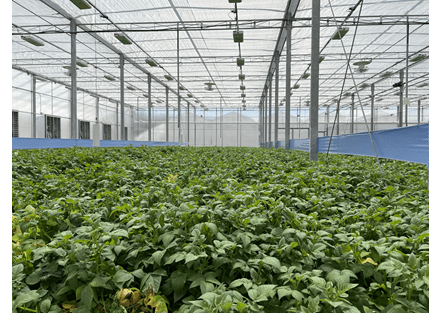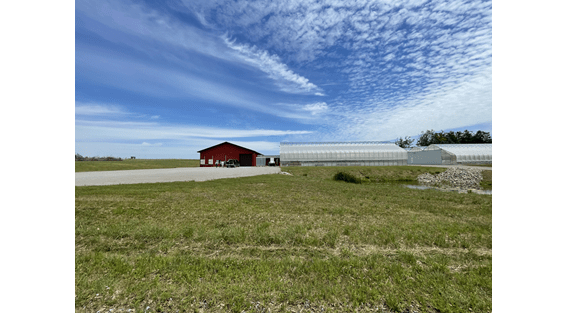The web Browser you are currently using is unsupported, and some features of this site may not work as intended. Please update to a modern browser such as Chrome, Firefox or Edge to experience all features Michigan.gov has to offer.
Sklarczyk Seed Farm Expands Export Production and Facility Operations Through MDARD Programs
October 17, 2025
Sklarczyk Seed Farm (SSF) is a generational farm in Johannesburg. Michael and Theresa Sklarczyk purchased the farm in 1942, growing potatoes and grain crops to feed their livestock. Mike began trucking the potatoes to the Eastern Market in Detroit, where a competitor realized the great quality of SSF potatoes and asked Mike to grow seed for his potato crop. Since then, Mike and Theresa have since handed the farm down through multiple generations of the Sklarczyk family. The current owners, Ben and Alison Sklarczyk, are the third-generation owners of the farm.
Over the past 15 years, the farm has seen significant growth in their operations. In 2009, SSF had only 30,000 square feet of greenhouse space and 2,000 acres of row crop farming space to produce roughly 3.5 million minitubers. To grow their operation, the farm constructed an additional five bay gutter connect glasshouse in 2013. In 2019 and 2020, SSF received the Food and Agriculture Investment Program Grant and the Rural Development Fund Grant from MDARD, which they used to construct another greenhouse and invest in their equipment. The overall expansion enabled SSF to grow additional varieties and helped them to meet the specific needs of international customers within the extra 20,000 square feet of greenhouse space. With the expansion, SSF now produces just over 10 million minitubers.


In 2019, SSF won MDARD’s Agriculture Exporter of the Year Award, an honor given each year to one export company in Michigan that achieves great exporting success. SSF has continued to grow in international export markets, expanding their share of exports as a percentage of their total revenue from 24.6 percent in 2016 to 60 percent in 2024. SSF now exports to Brazil, Canada, Chile, Egypt, El Salvador, Germany, Guatemala, Honduras, Pakistan, Tajikistan and Thailand.
SSF currently produces 5.5 to 6 million minitubers hydroponically each year with their three poly-top greenhouses and five bay gutter connect glasshouses. While SSF no longer grows field potatoes, they still farm about 1,110 acres of corn, wheat, soybeans and oats to supply markets throughout Michigan.
Visit Sklarczyk Seed Farm’s website for more information on their company.
Visit MDARD’s website for more information on how we can help your business.
Author: